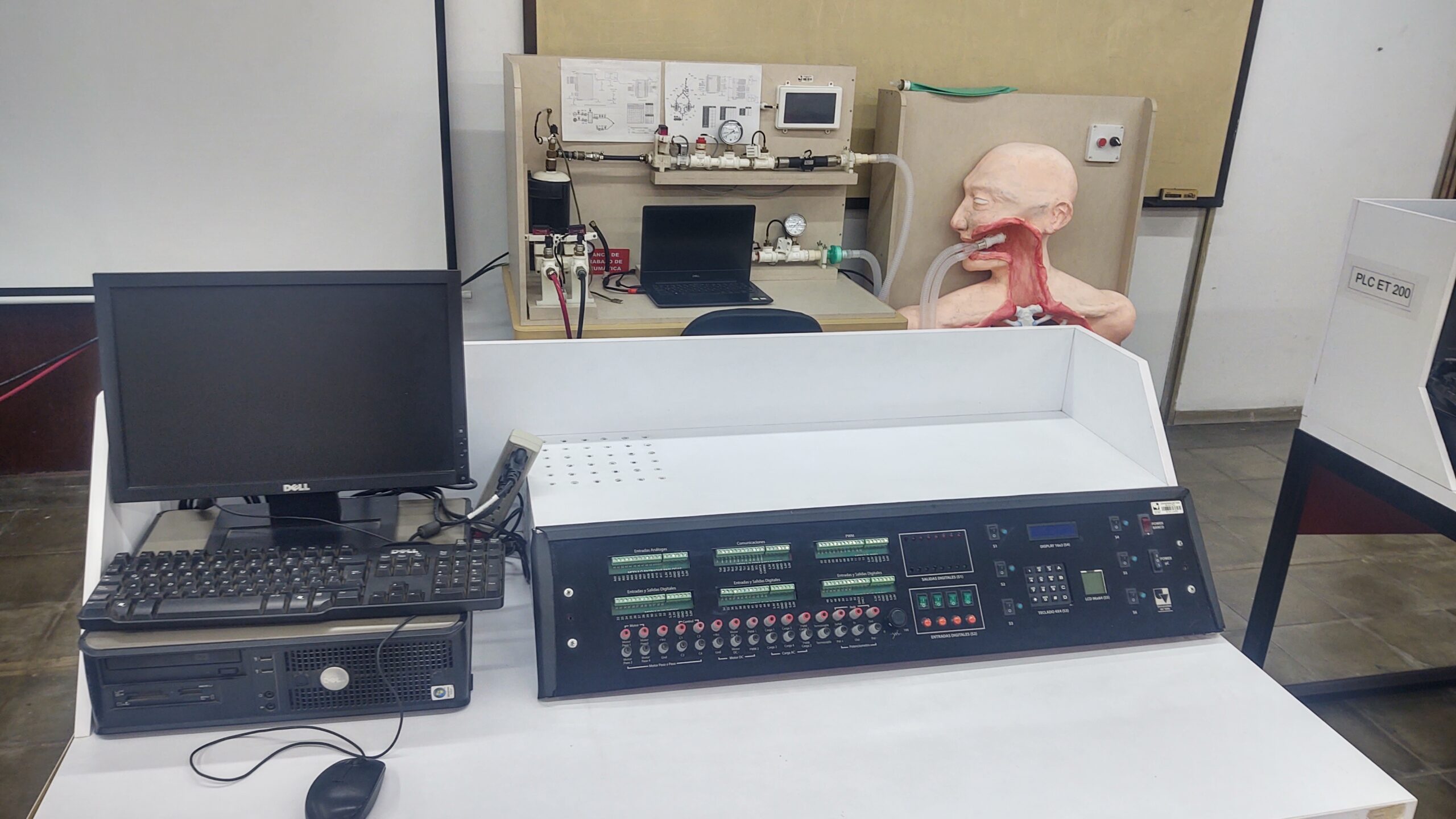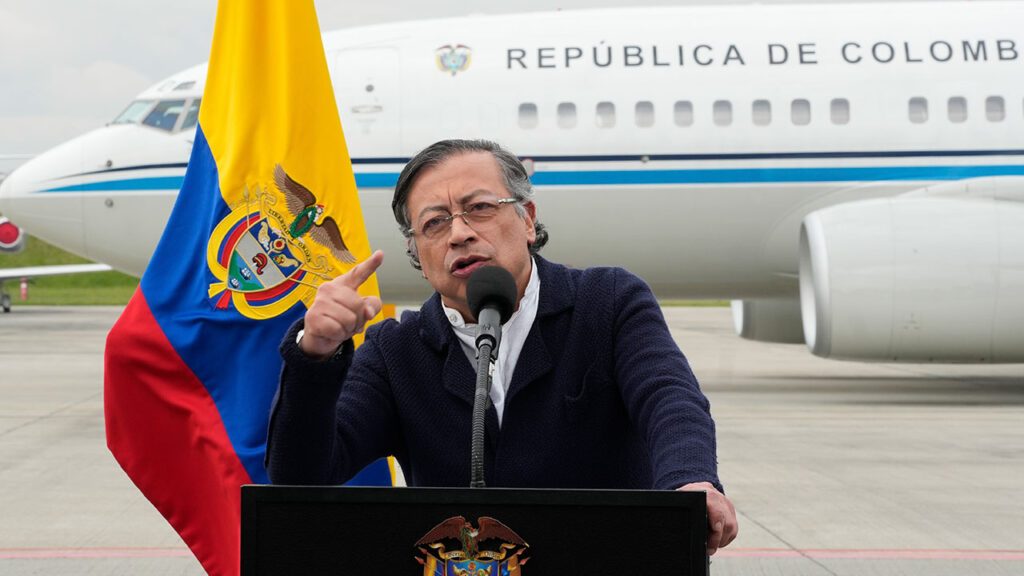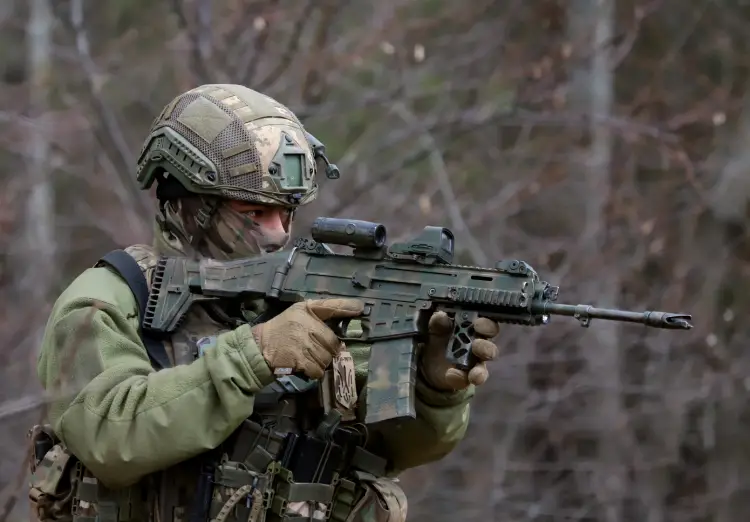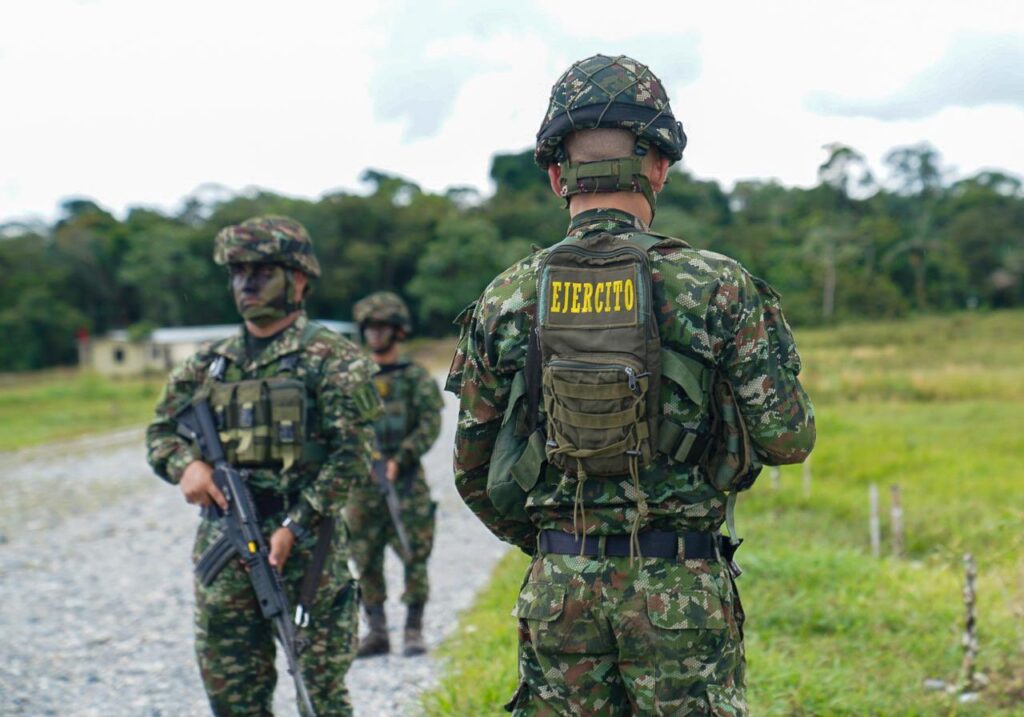Cali, Colombia – In a laboratory at the Universidad del Valle (Univalle) in Cali, Colombia, a group of more than 20 physiotherapy students received their Cardiopulmonary Unit II class through a modality that combines direct practice with a virtual learning environment.
For the first time, the students were able to see each component of a mechanical ventilator, hear it in operation and observe the simulation of real air inflating a patient’s “lungs”; all thanks to a research project between the faculties of Engineering and Health of Univalle.
Around the world, there are several projects to develop new respirators and according to an industry report, the global market for mechanical ventilators generated USD 4650 million in 2020 and is expected to reach USD 18.63 billion by 2030.Professor José Isidro García, from the Bionovo Research Group of Univalle’s Faculty of Engineering, explained that without well-trained personnel in the correct use of mechanical ventilators, they cannot be used for the well-being of the patient.
“During the Covid-19 pandemic, we developed a mechanical ventilator here at the Universidad del Valle, and during this process we realised the importance of training health professionals, particularly in small towns,” Professor Isidro said.
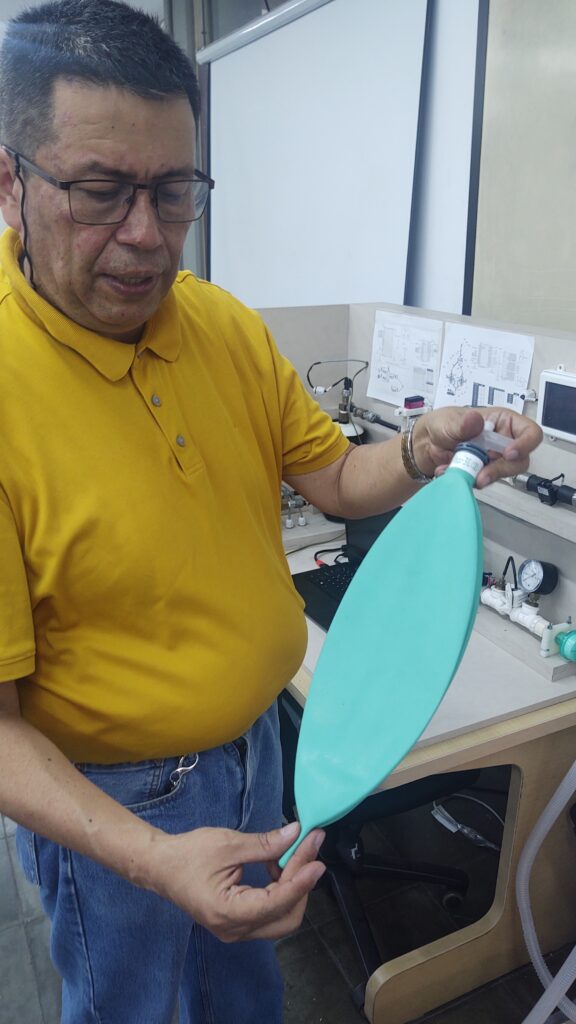
New Class
This class in the “VentyLab” is one of the final stages of a project that was submitted to MinCiencias by several research groups: the Logistics and Production Research Group, IVANES, Univalle’s Artificial Intelligence Group (GUIA), the Curriculum and Pedagogy in Higher Education Research Group (CURPES) and the Exercise and Cardiopulmonary Health Research Group (GIESC).
This first class using the simulated ventilator and patient was attended by several of the project’s key collaborators: Andrés Mauricio Valencia from the School of Mechanical Engineering was in charge of the machine he helped build; Esther Cecilia Wilches from the Faculty of Health brought her sixth semester students from the physiotherapy academic programme and guided most of the class, incorporating the machine as an educational resource.
During the session, the students were very active and involved.
“This session is part of a course, it is an introduction to the topic,” commented student Juliana Betancourt, adding that very soon the students will be in a clinical context.
Even before the pandemic, respiratory infections and respiratory diseases caused more than 10% of patient mortality in Cali, Colombia, so it is valuable to find new ways to educate the next generation of health professionals.
“Mechanical ventilators are an essential tool but lack of training means that for many doctors and other health care workers, the operation of the ventilator is a mystery, a black box,” Professor Isidro said.
According to Prof Isidro, students can clearly see what is usually hidden: not only every mechanical element of the ventilator but also the patient’s trachea and lungs.”Furthermore, we could control the ventilator remotely, so that students outside the lab can participate,” Professor Isidro said.
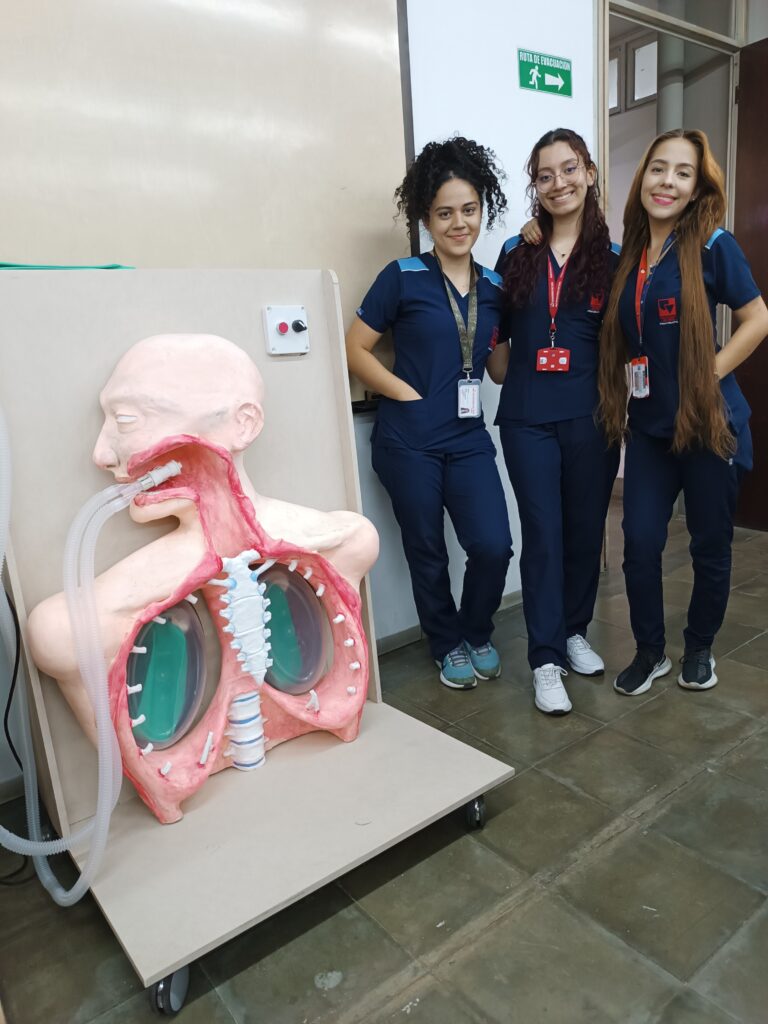
New Teaching Method
Normally, the training of professionals in respirator training is offered theoretically in the academic classroom and face-to-face at hospital during work experience, but this project offers the opportunity to access virtual modules and to carry out preliminary laboratory practice, which will soon also be available remotely.
Gloria Isabel Toro Córdoba, from the CURPES group at Univalle’s Faculty of Health and director of the Centro de Innovación Educativa Regional Sur (CIER-Sur), is responsible for the implementation of the virtual learning environment that accompanies this project.
The professor explained that after the development stage, this class was the first opportunity for the researchers to receive feedback from students in real time.
“Taking advantage of the pedagogical experience of the CIER Sur in the incorporation of educational technologies, we are supported for this project,” Professor Toro said and added that the idea is to continue strengthening this modality in order to replicate this experience with other disciplinary areas of the Universidad del Valle.
This article originally appeared on the Faculty of Engineering (Universidad del Valle) website here and was reproduced with permission. It is authored by Andrew James (NCC/Univalle).


